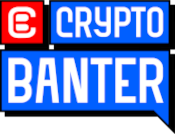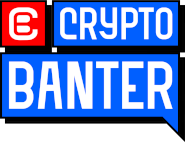Article contributed by Joe Robert. Follow them on Medium here.
Recently, the U.S. Treasury Department banned the crypto platform Tornado Cash, claiming that its services had contributed to more than $7 billion in money laundering. Tornado Cash helps crypto owners protect their anonymity by shuffling information trails on the blockchain, making it hard to track where money is going. The company’s official website has been shut down, as well as their devs’ accounts on GitHub.
This event is another relevant chapter in the battle between the U.S. authorities and the crypto community over financial security & privacy. But the outcomes are more complex than that.
#1: USDC is not as “safe” as it seems — keep in mind that there is a centralized entity running it
Circle, the company responsible for issuing the USD Coin, froze over $75,000 worth of USDC linked to Tornado Cash addresses. If you were a user of Tornado Cash and were not involved with any nefarious activity, you could’ve been the one not being able to transfer or withdraw your funds.
And as a crypto user, freedom over your assets is something you are probably looking out for. So if for some reason, the government decides that your assets in a specific platform should be frozen, Circle has the power to do so — even if we’re talking about more trustworthy platforms.
#2: Tornado Cash is being treated as an “entity”, not a technology
American celebrities such as Jimmy Fallon, Logan Paul, Shaq, Dave Chappell, Steve Aoki, and many more started receiving 0.1 ETH from a Tornado Cash account on August, 9.
The US sanction basically considers it illegal for any American citizen to interact in any way with the crypto mixer, but it’s technically impossible to prevent people from transferring assets to a public address. So, in theory, every single celebrity that received 0.1 ETH is now blacklisted.
This is the first time that the US Treasury sanctioned an autonomous blockchain-based software — in other words, they sanctioned a technology.
#3: The IRS might be about to add 87,000 New Employees: More Crypto Tax Enforcement
The IRS is expected to increase its personnel by 87,000 and have $45.6 billion in funding for enforcement. These funds may also be used to “monitor and enforce taxes on digital assets such as cryptocurrency”. If it happens, in theory, those agents could collect anything they think is wrong — and eventually affect several other crypto protocols widely used in the US.
#4: Tornado Cash ban might be a threat to free speech
A code is considered free speech in the US since the 90s, after the Bernstein v. Department of Justice case. So how ethical is it to ban the code of programmers? If the US Treasury banned a platform because it was involved with money laundering, it should do the same with centralized financial companies. Cases like this might set a precedent for the crypto community to battle the US government over their privacy and freedom.
What should you do as an investor?
Similar to what happens in traditional finance, if you receive dirty cash, you can be tracked. So if you want to HODL a cash position in your crypto portfolio, here are some tips on what you should do:
- have USDC on centralized exchanges because they offer the benefit of having software that tracks coins that might be dirty, and prevent them from being in your account;
- maintain your cash position in fiat money, to prevent any type of fund freezing;
- if you don’t really need to, do not participate in privacy protocols that could be used in illegal activities, such as ZCash, Monero, and Tornado Cash.
Joe Robert is currently the Chief Executive Officer of Robert Ventures, with over 20 years of asset management experience. Since he started Joe has created predictable double-digit returns for investors & Partners. Joe has invested in seed rounds with equity and tokens, along with a portfolio of Bitcoin, Ethereum, and other top cryptocurrencies.






